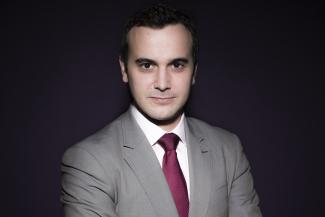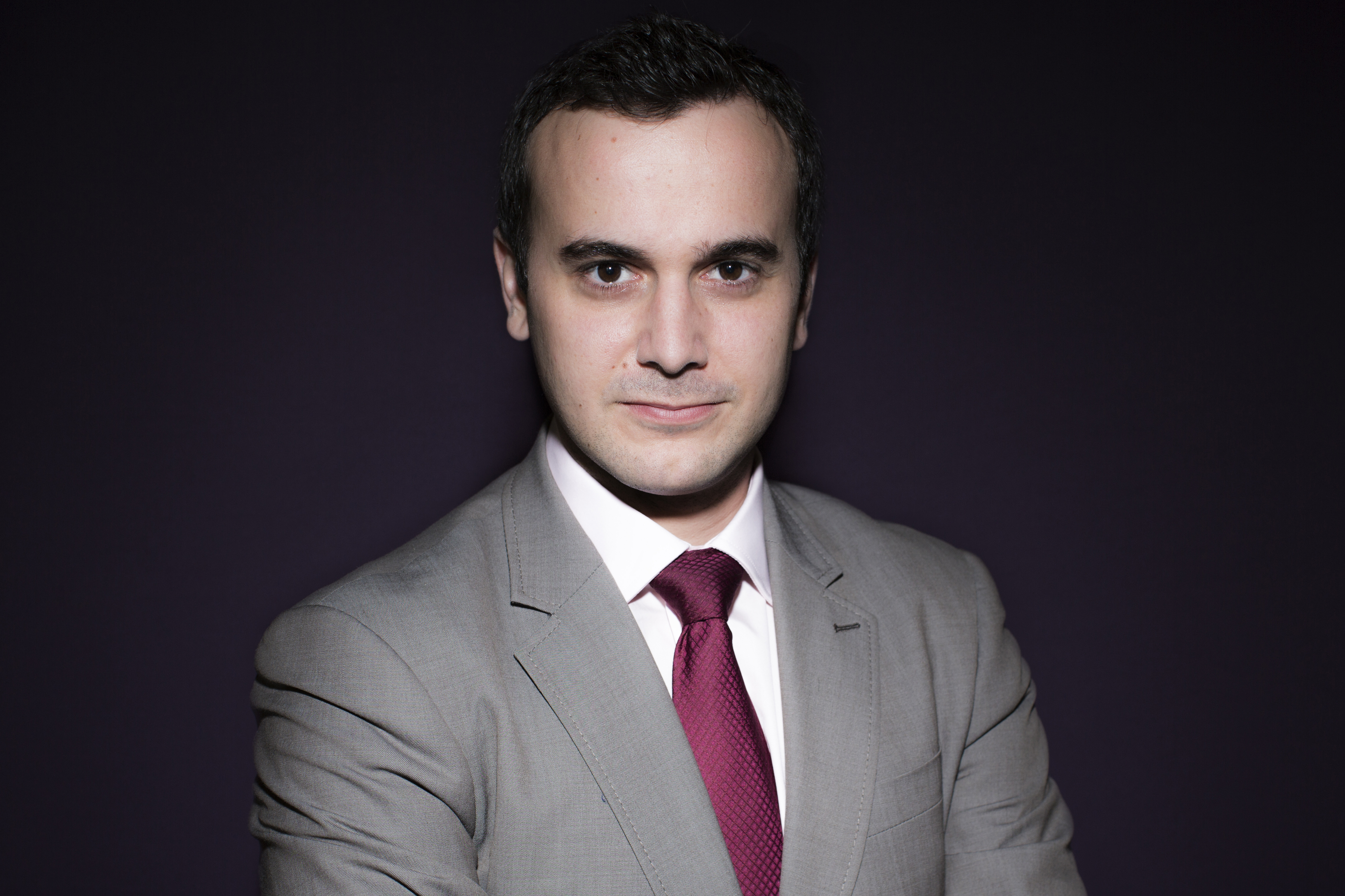Defence and Foreign Policy Under President-elect François Hollande
We know little about François Hollande's stance on wider foreign and defence policy issues. Though we are unlikely to see major changes from his predecessor, some clues from his successful campaign suggest that President-elect Hollande will adopt a more European and Gaullist approach.
A Gaullist-inspired foreign policy
Like most French presidents before him, François Hollande is likely to follow General de Gaulle's footsteps: a focus on the role of France in the world, an emphasis on the European project, and an ambiguous relationship with the United States. In that respect, he shall not fundamentally depart from what Nicolas Sarkozy pursued on foreign affairs. On NATO for instance, President Hollande may be more reserved than his predecessor, but he will not revert to the pre-2009 posture, when France rejoined NATO's integrated military structures although he disapproved of the decision at the time. At best, he will assess French participation in NATO, which will likely lead to an adjustment, and probable reduction, of the French military presence in the NATO Command Structure in terms of officers and non-commissioned officers.
However, he may prove less inclined to budge on some NATO issues. He has repeatedly said that he wanted France to withdraw from Afghanistan by the end of 2012. Over the campaign, he has slightly adapted his position when faced with the fact that his promise was technically unsustainable. There is no doubt that he will reiterate his intention at the NATO Summit in Chicago later this month, which will provoke tensions with some Allies. He has also indicated that he was 'reluctant' to commit to NATO ballistic-missile defence programme. According to him, France does not have the defence capabilities to benefit from it, which is only partly true. Behind this also lies the traditional French nuclear posture at the core of all resistance against changing the European nuclear landscape and undermining the role of nuclear weapons.
In keeping with Gaullist rationale, President Hollande will reignite less amicable relations with NATO than previously enjoyed by President Sarkozy. Yet, he is unlikely to block all initiatives at NATO as France did after the Iraq war. His defence advisor and likely Defence minister, Jean-Yves Le Drian, has travelled to Washington and to NATO's headquarters in Brussels during the campaign to alleviate possible concerns on that front.
Efforts to underpin the European project
What should depart from Sarkozy's presidency, at least in tone, is Hollande's attitude vis-à-vis the European Union, notably with respect to EU's efforts on defence policy.
On foreign policy, he will articulate his foreign policy mostly through the EU prism probably more systemically and consciously than Nicolas Sarkozy. The two immediate test cases will be in Syria and in the Sahel where France alone can achieve little. He has been so discreet about Syria that it would be pure speculation to ponder whether he will be as hard-hitting as Nicolas Sarkozy and Foreign Minister Alain Juppé were. On the Sahel, he is likely to carry on previous efforts to put this issue at the forefront of the European agenda, supporting the rapid launch of a civilian and possibly military EU training operation in Niger. On other issues, such as the relations with Russia and China, he is likely to use the EU as a force multiplier as well. Even in regions where France has been traditionally strong, such as North Africa, there has been an acknowledgement that it was perhaps smarter and more effective to support European efforts rather than going it alone in the past year and Hollande is unlikely to divert from that stance. On Iran, President Hollande should follow the enduring hard-pressed sanctions-diplomacy mix that Sarkozy fostered at all levels. Following French tradition, the more France is active at the EU level, the more it can hope to shape EU external policy.
On defence, François Hollande may seek a new momentum to the flagging 'Europe de la défense', loosely translated as European defence. It has been a French project since the 1950s to strengthen European defence policy in parallel to the Atlantic Alliance, to little avail. Nicolas Sarkozy devoted less attention to defence developments on the EU side and it is fair to say that if the French do not push for the Common Security and Defence Policy (CSDP), little happens. In that sense, Nicolas Sarkozy may have significantly altered the French attitude vis-à-vis European defence by reintegrating into NATO's military structures. 'L'Europe de la défense' today largely includes both the EU and NATO. Whether this new understanding was on purpose is debatable, and this has not been fully integrated in the French strategic doctrine. But a major factor pushing it forward is the American slow disengagement from Europe: the Alliance's fate has never been so intertwined with European actions and interests.
President Hollande is aware that the picture of European armed forces and capabilities is dire and that major co-operative efforts on all fronts are required to avoid strategic irrelevance. He will have to find the right balance between the two organisations, but will favour the EU to determine European defence's political perimeter. The European Council is arguably the only political structure able to foster an adequate overarching framework. Moreover, François Hollande remains Gaullist and developing a European defence through and within the EU would help inject political substance to the European project.
A European touch will be appreciated
Below the institutions, the question is whether François Hollande will try to follow up on efforts to revive the Weimar Triangle with Germany and Poland and what he will do about Franco-British co-operation. On the former, there is an understanding that the trilateral cooperation can be the leading force to muster European defence despite all the obstacles ahead. Germany is France's historical partner to build a more political EU, but has shunned the vanguard on defence issues in the past few years. In addition, the relationship with Poland is friendly, but far from reaching the depth that the Germans and the Poles nurture - a point on which François Hollande may direct some new efforts.
The relationship with the UK is likely to be politically rocky at first, because London has not been a strong supporter of CSDP and EU defence initiatives, and the French president may not be inclined to be as involved as his predecessor was in bilateral co-operation, which culminated in a defence and security co-operation treaty in 2010. He may reckon that this agreement has reasonable grounds both at the military and industrial level, but he will attempt to open it up to other partners. Let us not forget that several French circles hoped that the co-operation could help bring the UK closer to European defence. François Hollande will find as little support in London as Nicolas Sarkozy did on this. The UK may be further annoyed with the French president for supporting an EU operational headquarters, which London vehemently opposes. Yet François Hollande will not go to the bitter end and jeopardise the Lancaster House treaty, because he understands the strategic rationale to co-operate with the UK.
Defence budget: the Strategic Unknown
One of the issues to watch carefully is his management of budget cuts and the impact on French armed forces. The defence budget is usually an adjustment variable, among the first budget lines to experience cuts to limit the impact on issues deemed more controversial. The question is how much it will be, considering France's unpromising economic outlook. François Hollande has argued against this rationale, but Paris will have to honour its commitments to reduce the deficit from 5.2 per cent today to 3 per cent next year. All ministries will fiercely battle to maintain their share, and there will be many questions surrounding the relevance to maintain a 40-billion euro defence budget.
An essential debate will dominate the next few years: what are French ambitions with its armed forces? Either economic imperatives will lead the debate to downsize the French defence effort (in financial and human resources) or political objectives will succeed and the effort will be resilient. All debates and signs in the next two years until the next six-year plan for defence (2014-2020) will undoubtedly have a ripple effect. Yet the economic crisis is unlikely to bring about cool-headed debates on longer-term strategic considerations.
When it comes to foreign and defence policy, François Hollande will not mark a radical shift from Nicolas Sarkozy. He may be more Gaullist than his predecessor was, especially vis-à-vis NATO. He will try to include other countries to lead the European Union as well as develop EU's defence policy. Overall, François Hollande will work within the same framework as his predecessor, but will have the opportunity to define it in ways that Nicolas Sarkozy only sketched out, such as European defence. The new White Paper on Defence and National Security scheduled for this year could provide first hints, although it might not be as ambitious as the previous exercise in 2008.
This analysis was originally published on RUSI.org

Available in:
Regions and themes
Share
Related centers and programs
Discover our other research centers and programsFind out more
Discover all our analysesThe Franco-German Brigade and the Revival of European Defense
One thing has been clear since Donald Trump's return to the White House: the very existence of the European unification project is threatened. Unless it develops a sovereign defense policy to counter the war in Ukraine and the weakening of American security guarantees, the European Union will continue to see its internal cohesion and external attractiveness wane.
Taking the Pulse: Can Europeans Build Their Independent Extended Nuclear Deterrent?
Confronted with a U.S. disengagement and the Russian threat, Europeans are reconsidering their stance on nuclear deterrence. Given the capabilities of the French and British arsenals, can Europe develop an independent nuclear deterrent?

RAMSES 2024. A World to Be Remade
For its 42nd edition, RAMSES 2024 identifies three major challenges for 2024.
A Transatlantic Defense Industrial Base? Two Contrasting Views
The evolving landscape of global defense cooperation has brought the transatlantic relationship between the United States (US) and Europe into sharp focus. As geopolitical tensions rise and the threat environment becomes more complex, the question of how Europe can best ensure its security while navigating its relationship with the United States has become paramount. This double feature report offers two contrasting views on the dynamics of US-Europe defense industrial relations, highlighting the challenges and opportunities that lie ahead for both parties.









